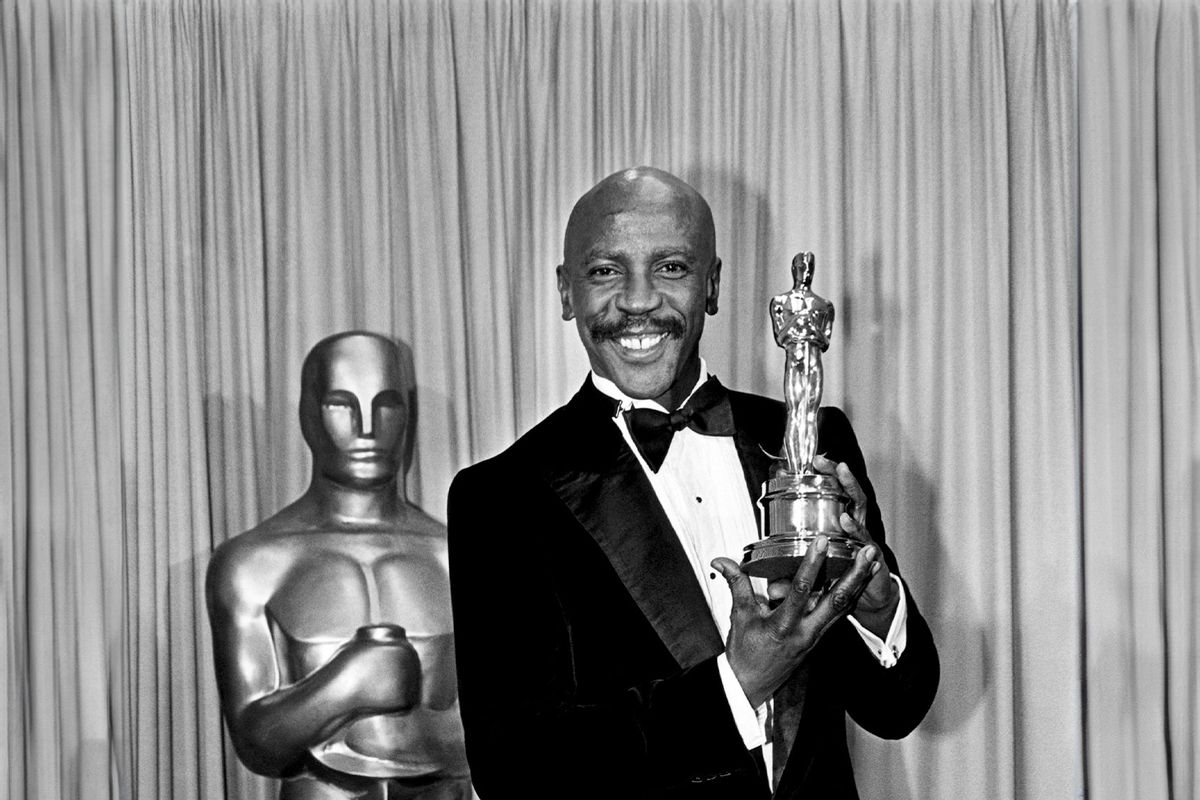Oscar-winning actor Louis Gossett Jr., who broke barriers in Hollywood when he became the first Black man to win the Academy Award for best supporting actor, has died at age 87. Gossett's cousin, Neal L. Gossett, first reported to the Associated Press that the actor had died in Santa, Monica, Calif. The AP reported that no cause of death has been revealed yet.
In a statement obtained by PEOPLE Friday, Gossett's family said, "It is with our heartfelt regret to confirm our beloved father passed away this morning. We would like to thank everyone for their condolences at this time. Please respect the family's privacy during this difficult time."
Born in Brooklyn, New York, Gossett attended New York University on a basketball and drama scholarship, even doing a stint in rookie training with the New York Knicks for a time. In 1959, he was lauded for his performance in the Broadway production of "A Raisin in the Sun" (alongside Sidney Poitier), which he would also star in the 1961 film version of, marking his first foray into Hollywood.
Gossett saw small-screen success in 1977 with the acclaimed miniseries "Roots," based on Alex Haley's novel that offered a stark depiction of slavery. The actor would go on to earn an Emmy for outstanding lead actor in a single appearance in a drama or comedy series for portraying Fiddler. Gossett's history-making moment came in 1983, when he won an Oscar for his portrayal of drill instructor Gunnery Sergeant Emil Foley in "An Officer and a Gentleman" (1982.) Writing about the win in his 2010 memoir "An Actor and a Gentleman," Gossett said, “More than anything, it was a huge affirmation of my position as a Black actor."
Throughout the 1980s and '90s, Gossett would continue to star in a number of movies and television shows, including "Enemy Mine," "Iron Eagle," "Sadat," "The Principal," "A Good Man in Africa" and "Jaws 3-D." Also in the 1990s, the actor assisted in the foundation of the Eracism Foundation, an organization whose central mission is to "contribute to the creation of a society where racism does not exist."
“I had to really learn the importance of what it takes to survive in this town, and I had to act as if I was second class,” Gossett said of experiencing racism within the industry, per CNN. “I had to ingest the onus of being an African American person in America.”
Gossett revealed in 2010 that he had been diagnosed with prostate cancer. As CNN noted, he chose to make his illness public “to set an example for the large number of African American men who are victims of this disease because of the comparatively low emphasis in our community on preventive examinations and early treatment.
“I want to influence them to seek, as I have, the fine medical care and early detection now available,” Gossett said at the time.
Read more
about this topic



Shares